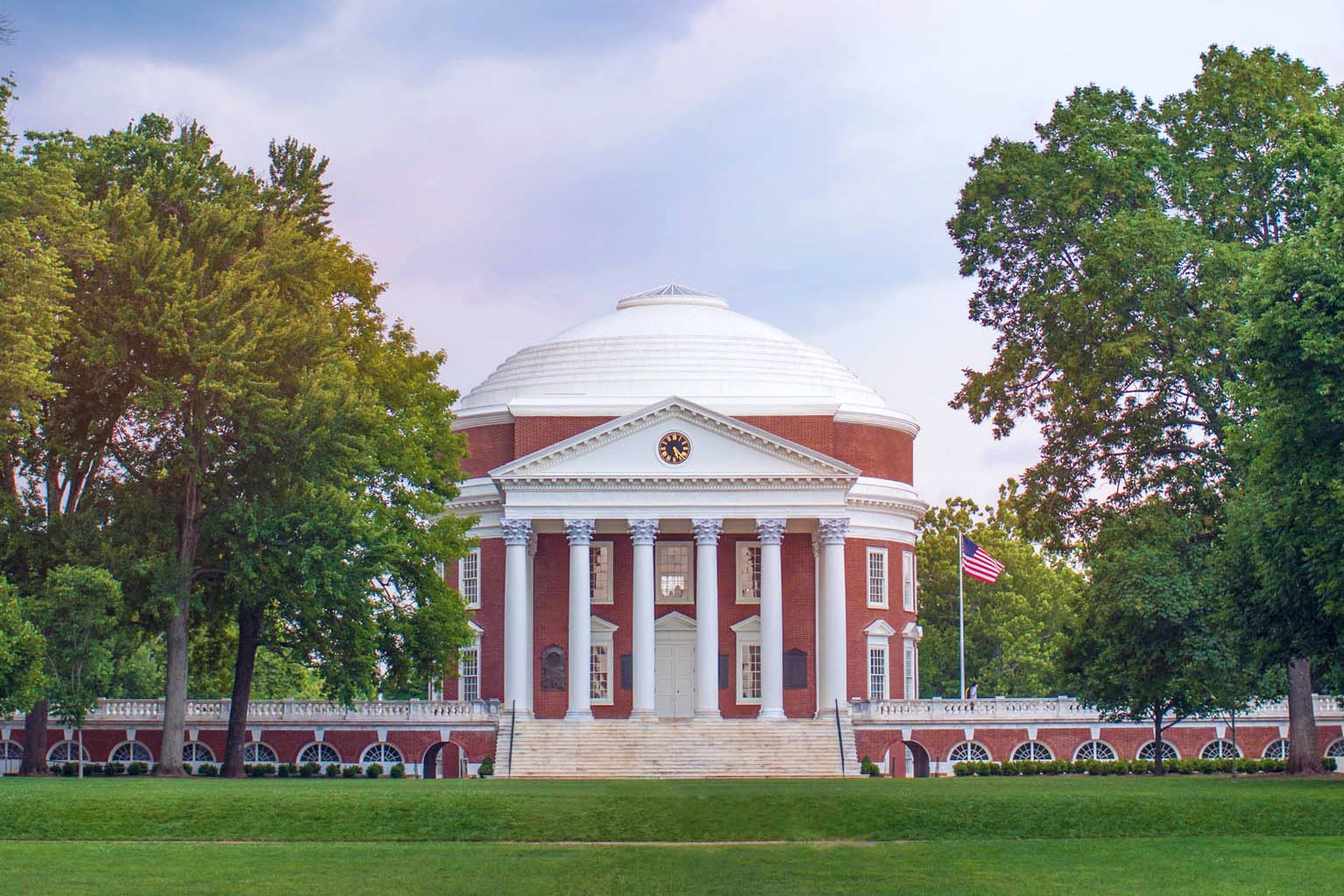On Wednesday, University of Virginia President Teresa A. Sullivan sent the following message to the University Community:
Members of the University Community:
Last night, several members of the University and Charlottesville communities held a protest at the Thomas Jefferson statue located north of the Rotunda, and several protestors covered the Jefferson statue in a black shroud. The cover has since been removed. One person was arrested for public intoxication.
I strongly disagree with the protestors’ decision to cover the Jefferson statue. I also recognize the rights of those present at the protest to express their emotions and opinions regarding the recent horrific events that occurred on our Grounds and in Charlottesville. Our community continues to heal, and we must remain respectful of one another if substantive progress can be made on addressing the many challenges and opportunities that we all face.
The University’s founder, Thomas Jefferson, made many contributions to the progress of the early American Republic: he served as the third President of the United States, championed religious freedom, and authored the Declaration of Independence.
In apparent contradiction to his persuasive arguments for liberty and human rights, however, he was also a slave owner. In its early days the University of Virginia was dependent upon the institution of slavery. Enslaved people not only built its buildings, but also served in a wide variety of capacities for UVA’s first fifty years of existence. After gaining freedom, African Americans continued to work for the University, but they were not allowed to enroll as students until the mid-twentieth century.
The University has acknowledged its controversial history and we continue to learn from it through open dialogue and civil discourse. In 2013, I formed the President’s Commission on Slavery and the University to explore UVA’s relationship to slavery and enslaved people and to make recommendations for steps UVA can take in response to this history. The Memorial to Enslaved Laborers that the Board of Visitors approved this past June is another example of how the University is reconciling its past with its aspirations for a more inclusive, diverse environment. Recent gains in enrolling students from under-represented groups and recruiting a more diverse faculty are also testament to our commitment to be a more diverse University.
Today, the University will formally dedicate Pinn Hall in honor of Vivian W. Pinn, M.D., one of the earliest African-American women to graduate from the School of Medicine and a former director of the National Institutes of Health’s Office of Research on Women’s Health. Later this week, the Board of Visitors will also discuss honoring W.W. Yen, the first student from China to graduate from the University of Virginia, and the first international student to receive a Bachelor of Arts degree from UVA, with a building name.
There is more work to be done, and I look forward to members of our community coming together and recommitting to our foundational values of honor, integrity, trust and respect.
Teresa A. Sullivan
President
On Wednesday, University of Virginia President Teresa A. Sullivan also sent the following message to alumni and friends:
Dear alumni and friends of the University,
Last night about forty students held a demonstration on the north side of the Rotunda and as part of this demonstration, they shrouded the Jefferson statue, desecrating ground that many of us consider sacred. I strongly disagree with the protestors’ decision to cover the Jefferson statue. The University dispatched workers to remove the covering, but when they arrived, it already was gone. One person was arrested for public intoxication. These are the facts of the situation, regardless of what you may read in media accounts of those who have their own agenda.
Coming just one month after the August 11 torchlight march by 300 racist and anti-Semitic protesters, a march that became violent, this event has reminded us that there are critical and sometimes divisive issues related to the exercise of free expression in an inclusive community.
I would like to frame this issue somewhat differently. Thomas Jefferson was an ardent believer in freedom of expression, and he experienced plenty of abusive treatment from the newspapers of his day. He would likely not be surprised to find that when there are critical disagreements in the polity, those disagreements will find expression at his University. UVA's importance as a university is underscored by the fact that arguments about free expression, hate speech, and similar issues occur here. Sometimes these arguments are noisy.
In your own college days, many of you experienced protests and activism at UVA. The war in Vietnam, Watergate, 9/11, and many other issues have been discussed, debated, and protested at UVA. We are at another such point. I prefer the process of discussion and debate, and the debate is happening here at UVA with a wide variety of guest speakers, panels, and other opportunities to look at underlying issues. That there is also activism should not be a surprise to any of us.
With my best wishes,
Teresa A. Sullivan
President
Media Contact
Article Information
September 13, 2017
/content/president-sullivan-addresses-sept-12-protest-thomas-jefferson-statue

